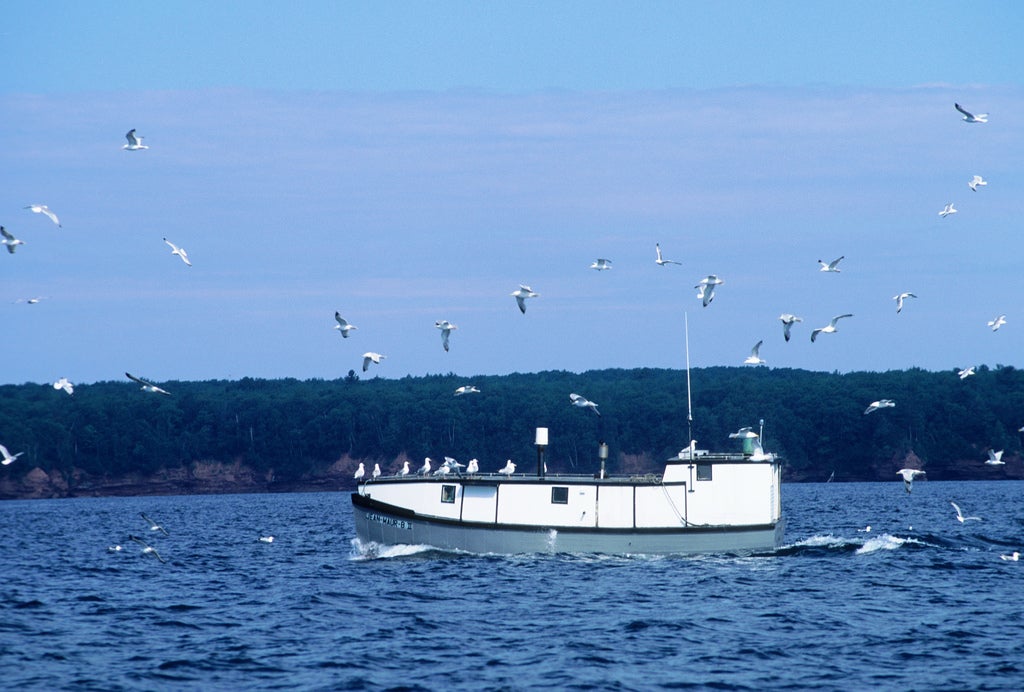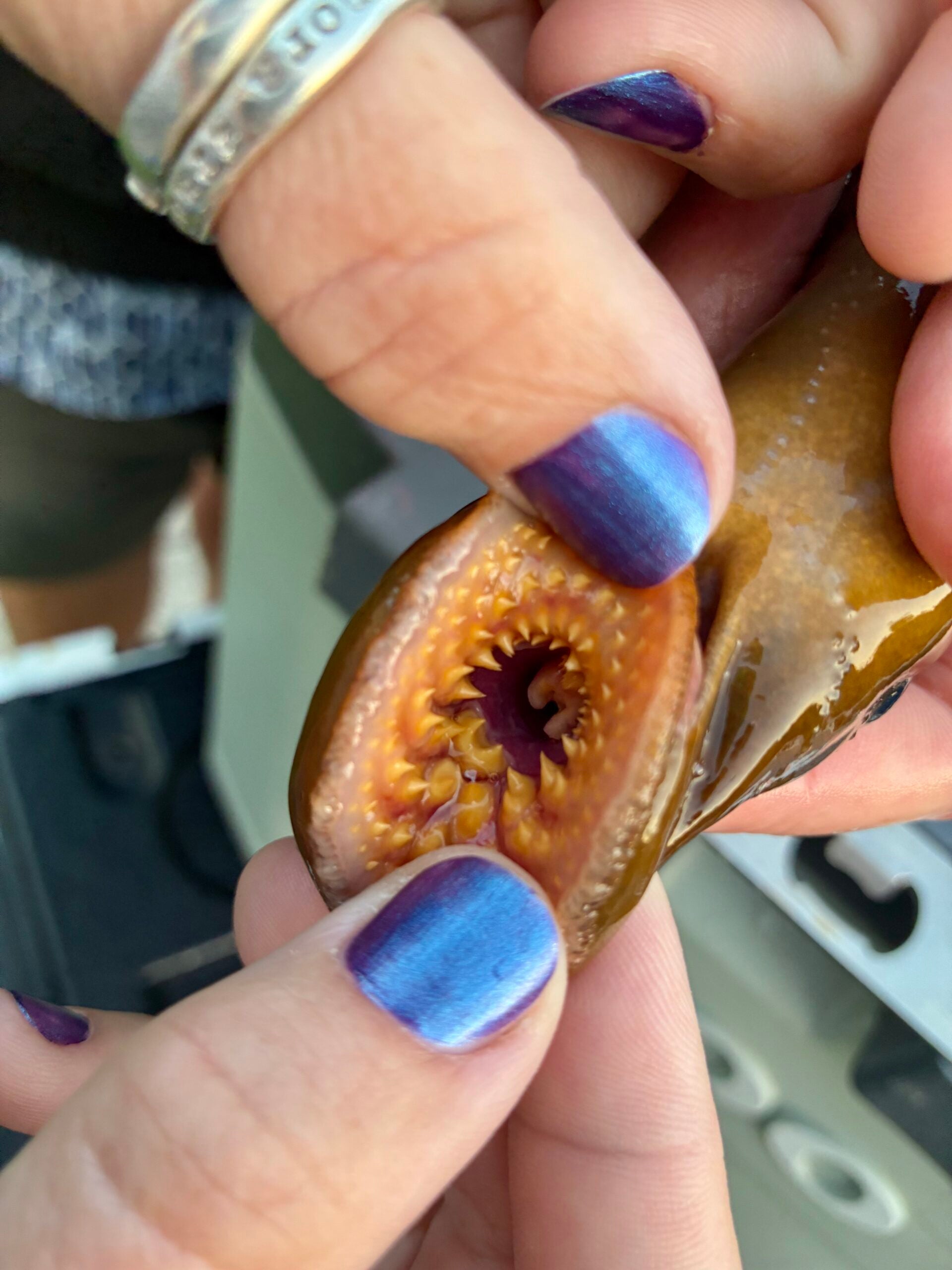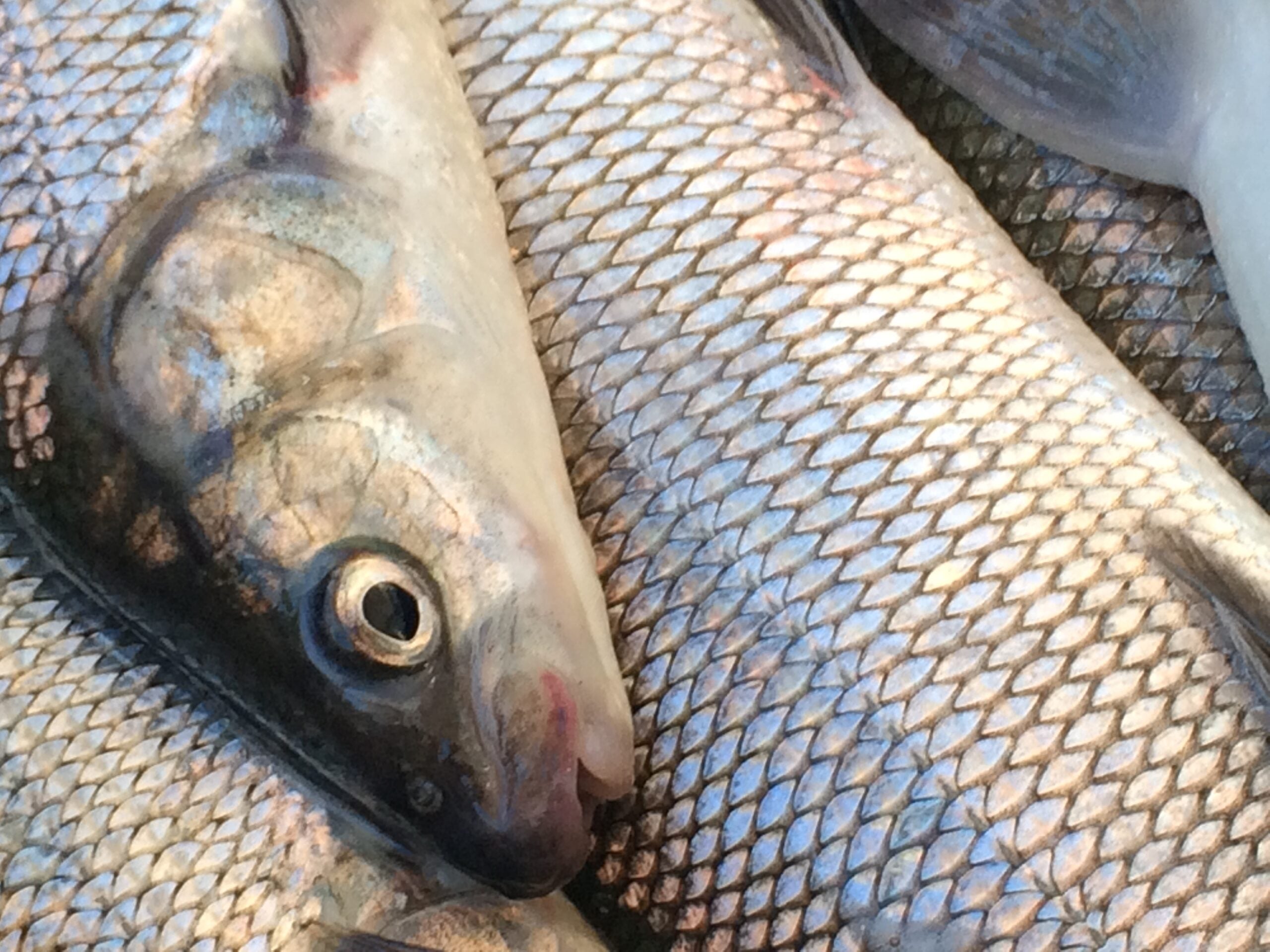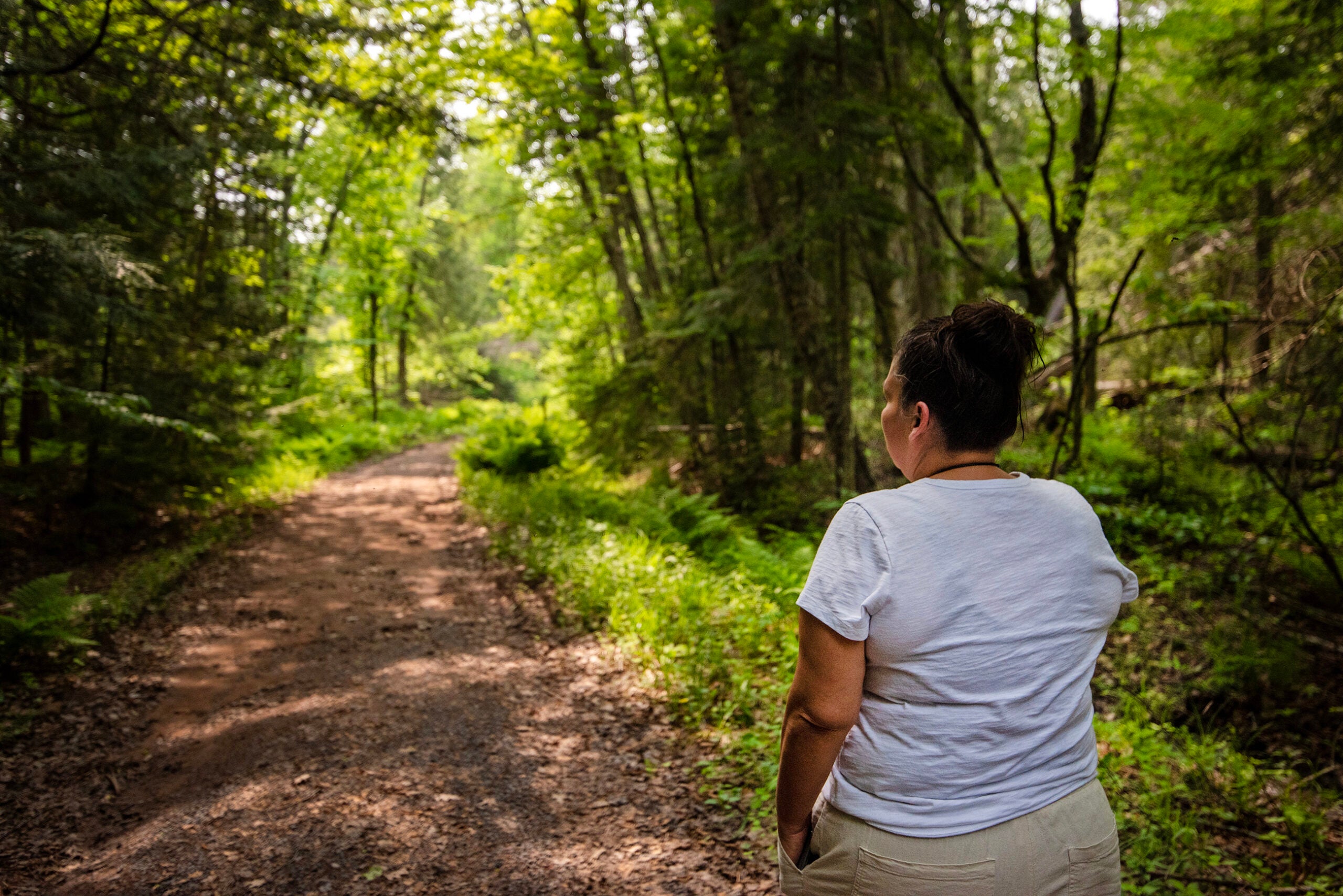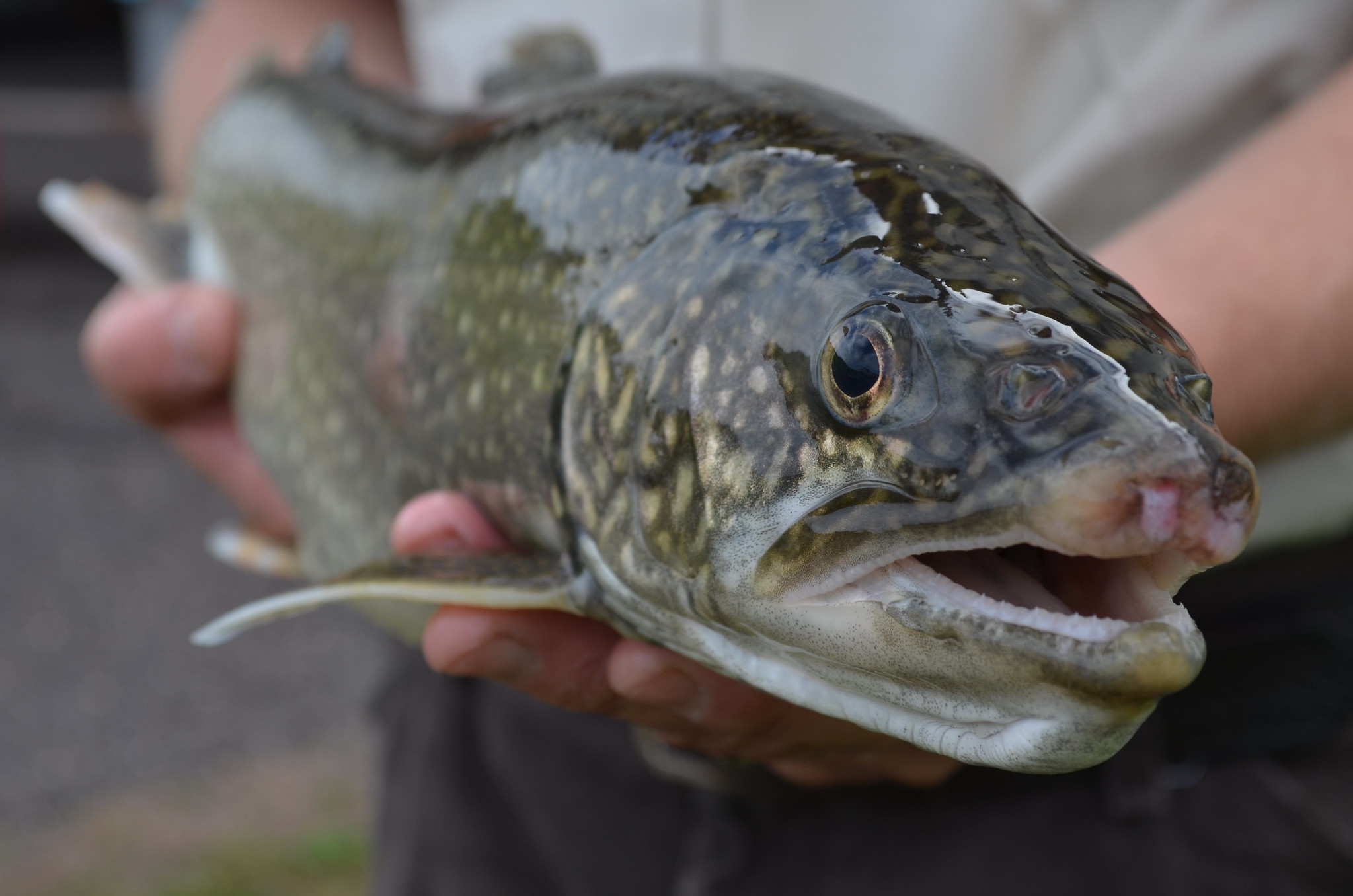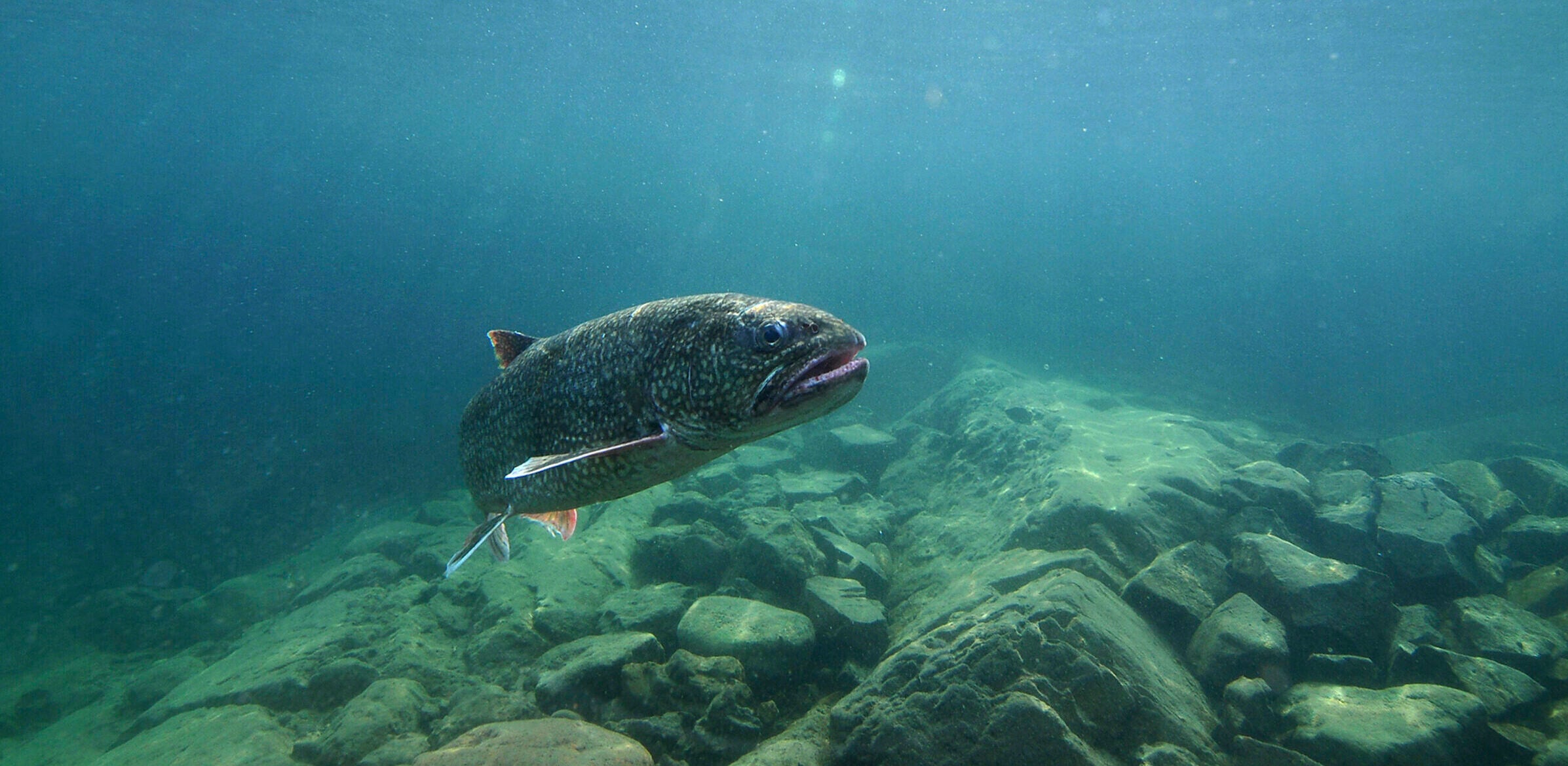The Wisconsin Department of Natural Resources is considering a permanent limit on cisco harvesting in the state’s Lake Superior waters, a prospect that faces opposition from commercial fishing operations.
The agency held a public hearing in Bayfield on Monday evening about its proposed rule to maintain the cisco population. Also called lake herring, the fish is a food source for commercially important whitefish and lake trout.
A handful of people showed up for the hearing, which ran less than 30 minutes. Brad Ray, senior fisheries biologist for the DNR, said cisco harvests quadrupled in 2008 when tribal and state commercial fishermen harvested around 1.4 million pounds. He said the rule seeks to maintain current harvest levels and would limit each of the state’s 10 commercial license holders to 130,000 pounds.
News with a little more humanity
WPR’s “Wisconsin Today” newsletter keeps you connected to the state you love without feeling overwhelmed. No paywall. No agenda. No corporate filter.
“Cisco are very important to lake trout. Lake trout numbers are up and down, so we want to maintain that forage base for lake trout,” Ray said. “They’re also very important for whitefish, which is the major commercial fishery … The eggs of cisco are an important diet item for the whitefish throughout the winter. It’s important to maintain that population that can sustain the other fish in the ecosystem, as well as a sustainable commercial harvest of those fish.”
Maurine Halvorson of Halvorson Fisheries in Cornucopia holds one of the state’s commercial fishing licenses. She said she’s opposed to the rule because she thinks there’s plenty of cisco in the lake.
“We are finding more fish out there than we’ve ever found,” she said. “Three days of fishing, we’ve had two boats out. Each of those boats have caught 25,000 pounds of fish.”
Halvorson said the rule combined with changing markets and poor weather would hurt their bottom line.
“We are also finding out we are being paid half the amount … It’s going to affect us a lot this year,” she said.
Halvorson also pointed out that the Red Cliff and Bad River tribes would not be affected by the rule because it only impacts state commercial and sport fishermen.
The DNR’s Ray said he worked with biologists from both tribes on the existing emergency rule. He said discussions about cisco management in the lake are still ongoing as part of efforts to negotiate a new Lake Superior Fishing Agreement between the state and tribes.
“But, since we’re under a one-year extension that actually expires at the end of the month, it’s unlikely that they could join in on this rule, but they understand the necessity,” Ray said.
The state negotiates joint natural resource management of Lake Superior with the Red Cliff and Bad River Bands of Lake Superior Chippewa. The state’s 10-year fishing agreement with the two tribes expired last year, but it was extended for one year. Ray said another extension is likely.
Tribal officials weren’t present at the Bayfield public hearing. However, Mic Isham, chairman of the Great Lakes Indian Fish and Wildlife Commission, offered his remarks on comments made before the Natural Resources Board in Ashland this past summer that tribes “got their rights to do anything they want.”
Isham informed the board, “Any inference that we’re somehow depleting the resources is 100 percent false.”
Meanwhile, the DNR’s Ray said the state’s 10 commercial license holders would actually be able to harvest more as a group under the proposed rule than they have in the past.
“It’s a regulation that’s put in place to make sure we can maintain sustainability. It’s not going to limit any harvest,” he said. “It’s maintaining harvest at its current levels.”
Wisconsin Public Radio, © Copyright 2025, Board of Regents of the University of Wisconsin System and Wisconsin Educational Communications Board.

